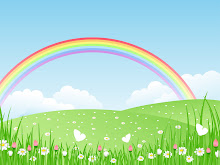In all my years of both my psychology degree and my OT degree it was drummed into my head to always "put the person first". We were taught to never refer to people as "bipolars" or "schizophrenics". Instead they were "a person with bipolar". Nursing home patients were supposed to be called "residents", mental health patients "clients" or my favorite, "consumers".
Now that I am very much a "consumer" I find this term obnoxious. I am bipolar. It doesn't matter what you call me, I'm bipolar. I know I'm a person, and using awkward wording to supposedly give me respect somehow seems to take away the respect of assuming I know I'm a person without being told.
I believe that if you are being treated for something you are a patient. Otherwise who differentiates who has patients and who has other things? Consumers seem to be only people with disabilities. So why separate us further in an attempt to make us not be different? It is true some services are only available to those with disabilities; it makes sense to refer to the people using those services appropriately for their needs. For example, I am a "consumer" of vocational rehab services. But why not just call me a person with a disability who is using those services? As far as the rest, my psychiatrist is a doctor and so thankfully I'm a patient. But really, what's the difference between the psychologist and psychiatrist? (I do know, but they are treating the same person with the same issues and working together to do it). My psychologist actually uses "patient", I think because he has a lot of hospital experience, and I'm so grateful for this because being called "client" grates on my nerves.
I have also noticed that most people with mental illnesses don't do this whole "I'm a person with bipolar thing". I not at all alone in defining myself as "I am bipolar". The whole point, according to my teachers, was to prevent patients/clients/consumers from thinking of themselves as only their illness, but I don't think that what we as professionals refer to someone as has much effect.
I define myself in many ways, as does every other person I've ever met. The most disabled people I've ever seen define themselves multi-dimensionally. I cannot think of one person, ever, who merely saw himself or herself as "schizophrenic" and nothing else. I do give my illness a lot of weight, because it demands it. Bipolar illness does define a great deal of my life. It is not who I am, nor does it dictate how my life shall be, but it does play a major enough role that I'm comfortable bracketing my name with it, just as I'm comfortable bracketing the end of my name with my professional credentials.
I want to be called bipolar. I am proud of myself because I live with this illness and I manage. I do things frequently I am amazed I can do. I don't want the thing that has the most influence over how my life is going to be downgraded. I was going to be a totally different person before I got sick. Now I am bipolar, and this is my life. It's not that much different than at one point I was going to be a teacher, and then I changed and now I'm an occupational therapist. Don't get me wrong, it's not that I love this disease, but I want it to be fully recognized as a major factor in my life.
Call it like it is....
Subscribe to:
Post Comments (Atom)







1 comment:
I struggle with this. Not the words, those don't matter to me. I don't care if someone calls me bipolar. But on a deeper level, to what extent am I a person with bipolar, vs. I am bipolar. When I am depressed, I am depressed. When I am manic, I turn into someone that is quite someone else. And for those times when I am neither terribly depressed, or off the wall manic, what am I? I don't know. I know this: I have had this illness for most of the years I have been alive, and for most of them not properly medicated. I am not the person I would be if I did not have this illness. I would have been someone else. I can't tell you who, just different.
Post a Comment